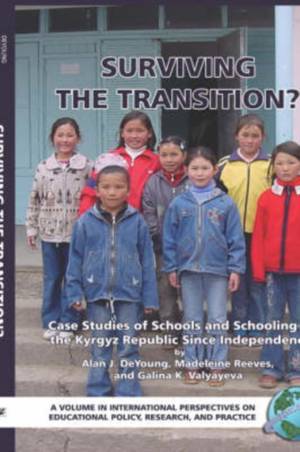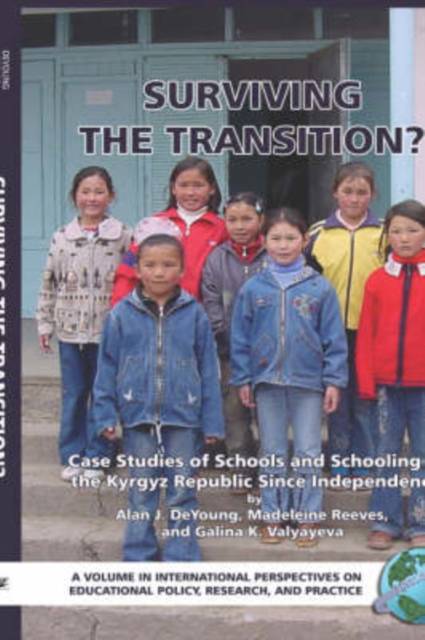
- Afhalen na 1 uur in een winkel met voorraad
- Gratis thuislevering in België vanaf € 30
- Ruim aanbod met 7 miljoen producten
- Afhalen na 1 uur in een winkel met voorraad
- Gratis thuislevering in België vanaf € 30
- Ruim aanbod met 7 miljoen producten
Zoeken
Surviving the Transition? Case Studies of Schools and Schooling in the Kyrgyz Republic Since Independence (Hc)
Case Studies of Schools and Schooling in the Kyrgyz Republic Since Independence
Alan J De Young
€ 152,45
+ 304 punten
Omschrijving
This is a book about four rural secondary schools of the Republic of Kyrgyzstan, a newly independent Central Asian state of the former USSR. Utilizing case study methods, we describe and discuss how teachers, administrators and students are attempting to survive the proclaimed "transition" to democracy and a market economy within their particular schools and communities. We view this work primarily as a cultural study of schools and school life, not a work about the national education system. There is in fact a growing volume of other writings on issues and problems in education in Central Asia, some of which we have ourselves contributed to. The focus in this study, however, involves school, individual, and group lives and dynamics in and around the four village schools we studied during 2004 and 2005. Two of the four schools are in Chui Oblast; one in Naryn Oblast, and one in Batken Oblast. One Chui school lies within an economically and demographically stable community by Kyrgyz standards; the other school faces more serious economic and migratory issues. Our Naryn school is located in an isolated livestock-breeding region of Kyrgyzstan high in the Tien Shan mountains near China. Finally, we describe community and school situations in an agricultural community in the south that is characterized by considerable poverty-driven labor migration. Our work involved schools in the small town of Shopokov, and the villages of Tash Dobo, At-Bashy and Ak-Tatyr. These are all actual places on the map of Kyrgyzstan - if your map is detailed enough. In several cases, nearby smaller schools are also discussed as they relate to our primary institutions.
Specificaties
Betrokkenen
- Auteur(s):
- Uitgeverij:
Inhoud
- Aantal bladzijden:
- 248
- Taal:
- Engels
- Reeks:
Eigenschappen
- Productcode (EAN):
- 9781593115128
- Verschijningsdatum:
- 28/03/2006
- Uitvoering:
- Hardcover
- Formaat:
- Genaaid
- Afmetingen:
- 156 mm x 234 mm
- Gewicht:
- 526 g

Alleen bij Standaard Boekhandel
+ 304 punten op je klantenkaart van Standaard Boekhandel
Beoordelingen
We publiceren alleen reviews die voldoen aan de voorwaarden voor reviews. Bekijk onze voorwaarden voor reviews.











